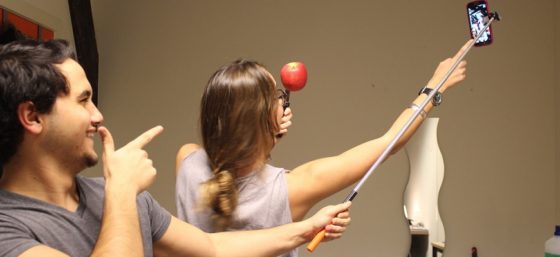Facebook Live is one of the more recent developments in live video streaming on the internet. When used properly, it’s a lot of fun to get a real-time glimpse into someone’s life or a breaking news situation. It has value, but it also has its place.
The Same Rules Apply
Legally speaking, the rules that apply to Facebook Live are the same rules that apply to live video apps. In 2015, I wrote a post about the legal dos and don’ts of Periscope. Those same rules apply to Facebook Live.
The challenge with live video . . . is it’s live. You can’t edit a live performance, so if you do something inappropriate or illegal, assume someone saw it, recorded it, and you may have to face consequences for it later. If you’re not jumping on Facebook Live to show a newsworthy event in real-time, I recommend you take a minute or two before you go live to think about the scope of want to talk about, what topics or language are out-of-bounds, and when you’ll know to stop the recording. This is especially true if you’re distraught or experiencing extreme emotions. If you’re especially upset, it may be better to wait a few hours until you’ve calmed down or record your thoughts without being live.
Playing Music on Facebook Live
A friend asked about the legalities of playing music during a Facebook Live broadcast. The rules that apply to radio stations, retail stores, and cover bands apply to a person who is live streaming. If the music is not in the public domain, the copyright holder has the right to control where their music is copied and played. Facebook Live is likely a public performance, so even if you own a copy of the song for personal enjoyment, you can’t play it publicly without a license. In these situations, the only person who can come after you for infringement is the copyright holder. If they don’t know or don’t care about what you’re doing, you may never get in trouble. (Of course there is an exception for someone who uses Facebook Live to give commentary or criticism of the music – that may be protected by fair use.)
Think Before You Post
As always, think before you post/broadcast yourself. Once you put something out there, you can never fully take it back. What seemed like a good idea in the moment may be tomorrow’s regret, with long-lasting implications. Last summer we saw the disturbing Facebook Live video of a Georgia mother beating her 16 year-old daughter. The woman wasn’t charged with assault, but I wonder what will happen the next time she applies for a new job and the news stories (with video) from this incident dominate the results when prospective employers search for her name.
These are my rules of thumb when it comes to posting anything on the internet:
- Don’t post anything online that you wouldn’t put on the front page of the newspaper.
- Assume everything you post will be seen by four people: your best friend, your worst enemy, your boss, and your mother. If you don’t want to one of those people to see what you’re thinking about posting, don’t say it.
The laws that apply to the internet is an area of law that is constantly developing as cases are decided and new statutes are added to the rule book. If you want additional information about the legalities of social media, please check out my book The Legal Side of Blogging: How Not to get Sued, Fired, Arrested, or Killed. You can also contact me directly or connect with me on Twitter, Facebook, YouTube, or LinkedIn. You can also get access to more exclusive content that is available only to people on my mailing list, by subscribing here.
